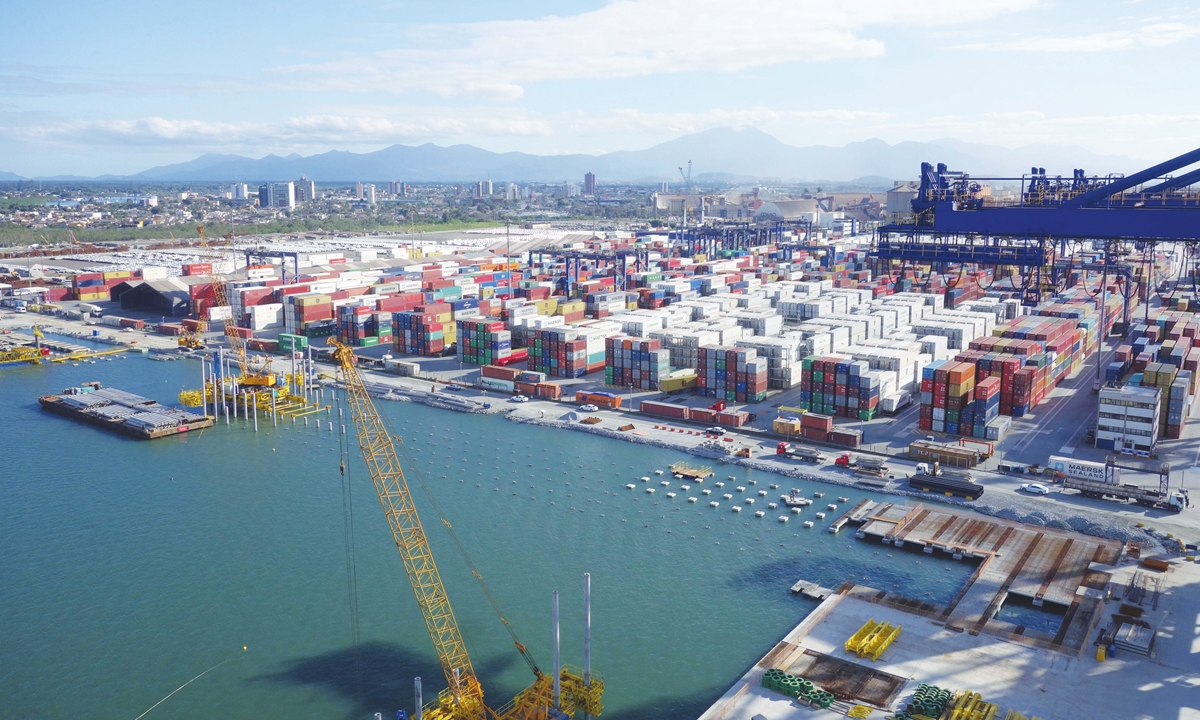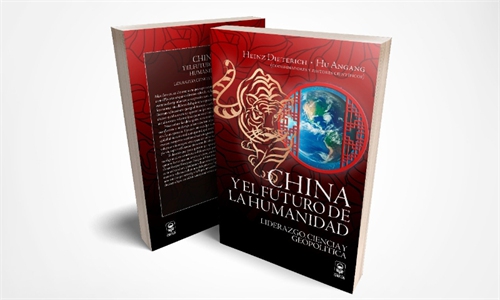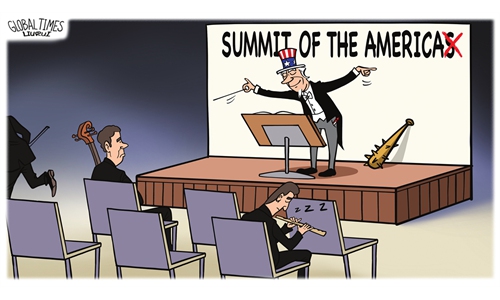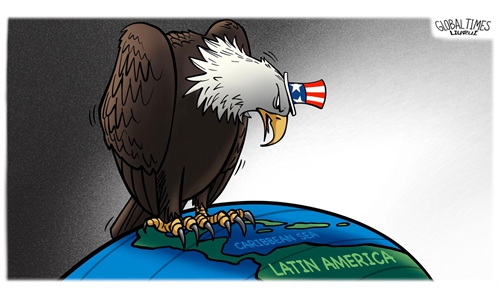
Port of Paranagua in Brazil. Photo: VCG
Editor's Note:For the Chinese people, the past decade was epic and inspirational. The country, under the leadership of the Communist Party of China with Xi Jinping at its core, has made great endeavors in boosting its economy, deepening reforms, improving the rights of its people and acting as a responsible power globally.
The past decade has witnessed a strong momentum in deepening cooperation between China and Latin American and Caribbean (LAC) countries and growing efforts from both sides in building a China-LAC community with a shared future and common progress. What role has China played in Latin America's development? Why has China's engagement in the region been increasingly welcomed by locals, whilst they have become wary of the US? The following article sheds light on these questions.
This is the eighth of the series.
We are certainly living in complex times, where economic cooperation and joint work, particularly among emerging countries and the so-called Global South becomes more important than ever. After years of enormous pressure caused by the pandemic, social, economic and global challenges in the current international landscape remain urgent. The expansion of the COVID-19 epidemic to all corners of the planet is a bitter reminder of an inescapable reality, the most fundamental problems are also common problems. Despite inequalities and differences, the countries of the world are inevitably interconnected when it comes to the need to address global challenges.
During this difficult period, the nations of Latin America have faced the formidable task of combating the virus while stabilizing their economies and protecting people's livelihoods. The measures implemented to contain the spread of the pandemic had a severe economic and social impact, exacerbating structural problems in the region such as inequality and poverty. The governments of Latin America are currently working hard to promote economic reactivation after this crisis, concentrating efforts on companies' return to production and growth, while creating employment and improving social living standards for the people.
Throughout this time, China has carried important and active anti-epidemic cooperation initiatives with Latin America, offering help in terms of medical supply and technical expertise, and leading the international fight against the pandemic.
China also remains a strong economic partner, maintaining its demand for export products from the continent and contributing to the economic recovery of Latin American countries. China is currently the main trading partner of South America as a whole, maintaining an important and active cooperation in multiple areas, in which not only trade and the economy stand out, but also scientific, technological and, recently, health cooperation. In the face of the enormous difficulties that the pandemic meant for everyone, Chinese assistance in terms of medical supplies and technical expertise has been greatly valued and appreciated.
While China has concentrated its efforts in the region on growing trade, investment, diplomatic exchanges and medical cooperation to face the pandemic, the US seems to have maintained an erratic policy that consisted in either sanctions against countries that did not conform to its political guidelines such as Cuba, Venezuela or Nicaragua, or constant warnings to all the countries of the region about the supposed dangers of establishing ties and cooperation initiatives with China. Generally, Washington lacked a positive agenda for the region with concrete proposals on how to help Latin American countries overcome the hardships that the pandemic and subsequent economic crisis brought. While China has concentrated its efforts in the region in growing trade, investment, diplomatic exchanges and medical cooperation to face the pandemic, the US has basically maintained an intermittent policy that consisted in an overwhelming quantity of sticks and practically no carrots.
The Ninth Summit of the Americas kicked off in Los Angeles, the US, on Monday in another edition of the event that regularly brings together heads of state and government of the Americas to discuss political and economic issues. This time, however, things might not go as planned. The unilateral decision of the Biden administration to exclude the governments of Cuba, Venezuela and Nicaragua, among several long-dated problems in relations between the US and Latin America, seems to turn this new edition of the summit to a farce.
The summit, which was supposed to be a demonstration of the power of the US in the region, can become a sign of the transformation that is taking place globally. We are currently witnessing a set of structural trends at the global level that certain US leaders do not seem willing to understand. The emergence of a multipolar world where countries are no longer eager to automatically align themselves with certain powers, but instead hope to cooperate jointly in order to solve global challenges based on the search for mutual benefits.
Latin American countries, as every country in the world, value autonomy, the ability to make decisions in a sovereign manner and the capacity to defend national interests by establishing links with all countries that are willing to work for mutual benefits. The worst thing that can happen to the countries of the region is to receive external pressures to make a certain decision in the international arena or to choose between countries based on outmoded criteria from the Cold War. Our countries are willing to join forces with other countries to cooperatively face great global challenges, such as social and territorial inequalities, global warming and health care, to achieve harmonious and equitable development.
China has become a benchmark for the world in terms of growth and combating poverty, showing a path of opening-up and development adapted to national circumstances and needs, with a thriving middle class, which has become one of the engines of the world economy. Our countries are united by values and principles such as multilateralism, the fight against poverty and the climate threat, and respect for the sovereignty of peoples.
It is time for countries around the world to abandon outdated Cold War principles and move forward so that in the coming decades we can consecrate, together, the values that unite us because, as the pandemic we hope to soon leave behind taught us, the big problems are, by definition, common problems.
The author is a PhD in International Politics at Fudan University. He served as parliamentary Advisor to the National Chamber of Deputies of the Argentine Republic and Research Coordinator at the China-Brazil Business Council. opinion@globaltimes.com.cn



